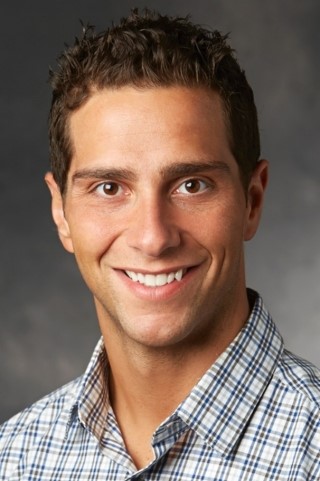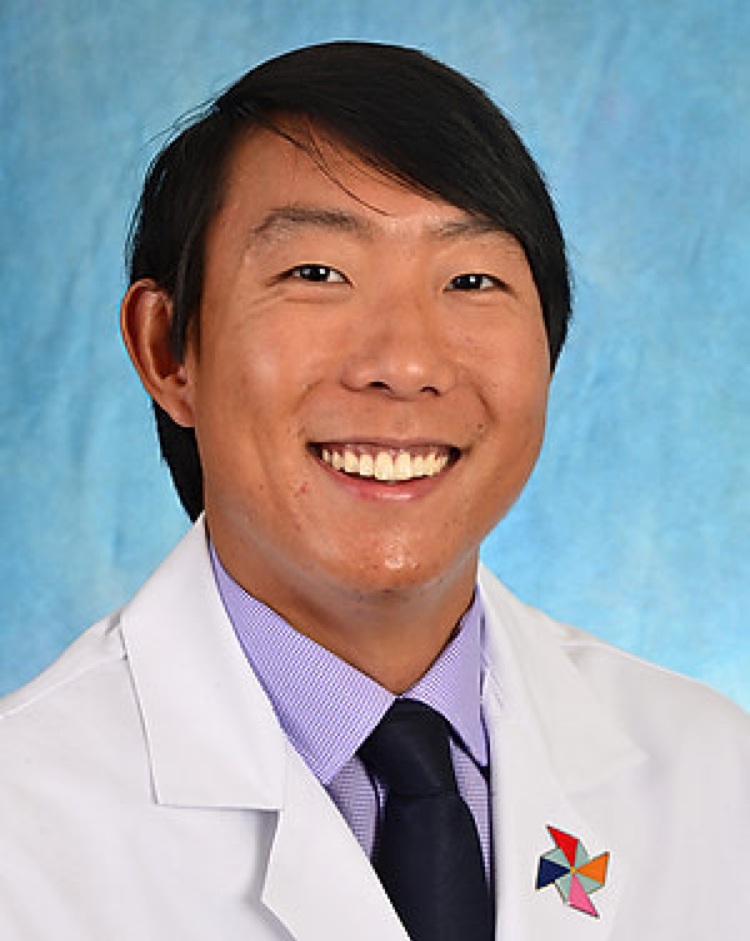

Daniel Migliaccio, MD, FPD
Director of Ultrasound Fellowship
Emergency Ultrasound Fellowship Director
Daniel_Migliaccio@med.unc.edu
The Emergency Ultrasound Fellowship is a one-year program with an optional second year for obtaining an associated Master’s Degree (MPH, MED). Our goal is to offer an opportunity to build invaluable skills tailored towards a fellow’s career aspirations while providing the tools necessary to function in the role of an Emergency Ultrasound Director or Assistant Director in either community or academic settings.


Director of Ultrasound Fellowship
Emergency Ultrasound Fellowship Director
Daniel_Migliaccio@med.unc.edu


Medical Director of the Pediatric Emergency Department
Director of Pediatric Emergency Ultrasound
daniel.park@unc.edu
In the ED, we have 2 top-of-the-line Sonosite XPorte ultrasound systems with 4 Sonosite Edge machines, which are loaded with multiple transducers, clip storage, and multiple software packages. Importantly, the software allows for the integration of the point-of-care study into the patient’s medical chart instantaneously which allows for consultants to view our studies as well as to serve as an initial reference point for the patient who may require multiple studies. Our dedicated pediatric US machine (a third XPorte) is equipped with pediatric transducers which allow for rapid imaging of complex pediatric patients.
We collaborate closely with our Anesthesiology, Trauma Surgery service, Radiology, Cardiology, and Family Medicine Departments which all use point-of-care ultrasound routinely. Many of these departments have provided phenomenal high-end didactic education and partnered with us on research projects. Our Cardiology Echo Lab is highly supportive of our fellowships and ultrasound research, with opportunities for advanced echo and critical care US education in their echo lab. Highlighted opportunities include opportunities to learn regional anesthesia, transesophageal echocardiography, and advanced transthoracic echocardiography.
All ultrasound fellows meet twice a month for a career development curriculum and will review their career development plans regularly with the fellowship director. The 5 pillars of the ultrasound fellowship are as follows:
Teaching is a fundamental component of the fellowship. Fellows provide ultrasound education for the following:
Complete an original research project. Headed by Dr. Tim Platts-Mills, the Department of Emergency Medicine at the University of North Carolina is a research powerhouse. The department brings in over $10 million annually in external funding and is one of the premier emergency departments in the world for studying emergency health informatics. The resources for producing high quality, powerful game-changing research in ultrasound are available to the fellows of UNC EM Ultrasound. Excitingly, Dr. Platts-Mills will be leading a year-round research education curriculum for fellows in the form of monthly educational sessions.
Fellows combine clinical shifts in an academic teaching hospital with didactics. Fellows are required to work 9 shifts per month (approximately 18 hours per week) as Attending Physician in the emergency department (ED) at the University of North Carolina (UNC) at Chapel Hill. While attending in the ED, fellows supervise residents and medical students.
The Department of Emergency Medicine at UNC-Chapel Hill is a Level 1 Adult and Pediatric trauma center with aero-medical transport. The diverse and high acuity patient population provides an excellent opportunity to continue to master clinical skills. UNC is a Level 1 trauma center with an annual patient census of approximately 70,000. The total number of inpatient beds is near 860. As a public, tertiary-level hospital, 24-hour subspecialty consultation is readily available in fields such as Cardiology, Neurology, OBGYN, Surgical Sub-specialties including Trauma, Burn, Vascular, Cardiac, Orthopedics, Ophthalmology, and Plastics. Faculty over-see student learners (Residents- EM and Off-service, Medical Students) and provide direct clinical care at this site. Clinical care is further supported by Mid-Level Providers and Medical Scribes.
Faculty (which include Fellows) also staff a newly opened community-affiliated ED in Hillsborough, NC, which opened on July 6th, 2015. This 10-bed ED has a current average of 50 patients/day with a projected annual volume of 18,250 visits. Fellows will work an individually determined percentage of their clinical shifts in both EDs. Patients are easily transported to the main Chapel Hill Medical Center ED or inpatient setting as a close relationship exists with the Hillsborough Community ED campus. Clinical Care is supported by Medical Scribes and Mid-Level Providers.
Applications will be accepted through the Society of Clinical Ultrasound Fellowships. All fellows must be ABEM board certified/eligible. Applications are considered complete when applicants have uploaded: